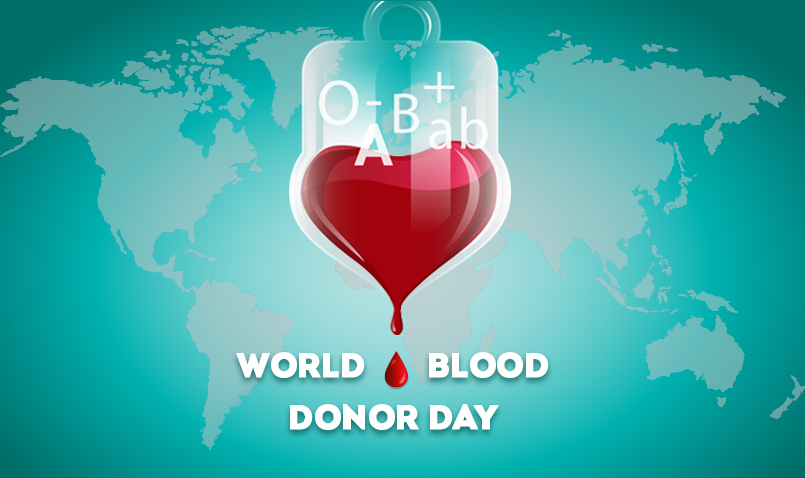World Blood Donor Day is celebrated every year on June 14. The day marks the celebration of lives that have been made better due to blood donations. It also appreciates the heroes who have donated blood selflessly for saving life of people in need of blood transfusion and giving them gift of life. This celebration of sharing and caring for life aims to promote the awareness of the cause – blood and blood products donations.
People with ailments like liver disease, severe infection, anemia, kidney disease, cancer, hemophilia etc. generally need blood or blood products to recover. Also blood transfusion becomes necessary when people have lost large quantities of blood in an accident or during surgery.
Typically there are three types of blood donors – Voluntary, Family/Replacement and Paid. The blood type and its Rh type determines whether the donor and recipient are a match for transfusion of blood.
According to WHO (World Health Organization), around 112.5 million units of donated blood are collected globally every year. Out of which 47% donations are from countries with high income.
The number of blood donations have increased in recent years, but people are still unaware about the blood donation prerequisites, procedure and its impact.
Who can and cannot donate blood:
- Individuals who are healthy, over 17 years of age and weighing at least 50 kgs or 110 lbs can donate blood in every 56 days.
- People over 60 years of age cannot donate blood.
- Your medical history, latest health check-up report, lifestyle and eating habits determine whether you are fit to donate blood.
- It is advised that you should have had a proper fulfilling meal at least 4 hours prior to making blood donation.
- People who are on medications, pregnant ladies and breast feeding mothers are not allowed to donate blood.
All over the world, blood banks collect, test and store blood, which can be used in case of emergencies. Blood donation in a blood bank takes not more than 10 minutes. Recently many corporate organizations also arrange for blood donation camps, where their employees can donate blood.
| Myths |
Facts |
| Blood donation is a very painful process |
The sensation of the needle pricking your arm is similar to an ant-bite, the process is painless otherwise |
| You may get infected after donating blood |
You do not contract any disease/infection if you donate blood, just make sure the needle used for transfusion is fresh |
| Blood donation makes you feel low and weak |
Being well-hydrated will ensure that there is no dizziness when you donate blood. Also a cup of tea/coffee with a few cookies will make you feel better immediately, after blood donation |
| You need complete rest after donating blood |
You can resume your everyday chores after donating blood |
| Blood transfusion should not be performed in case of Children, premature infants and pregnant ladies |
Children, premature infants, pregnant ladies can be safely given blood, when in emergency |
| Frequent blood donations weaken the immunity of the body |
Blood donation does not weaken the immunity of your body |
| Smokers are not permitted to donate blood |
People who smoke can donate blood, but they have to refrain from smoking an hour before and after the procedure |
| Obese people can donate more blood |
Obese people have more fat tissues in them, which has nothing to do with blood donation |
Blood donation is a noble cause just like organ donation
This year, on June 14
th let’s pledge to donate blood and save lives. Also don’t forget to catch up the global event of blood donation, which will be held in Athens, Greece.
Having health insurance is beneficial whether you are a donor or receiver. Look out for the
medical insurance plans on our website and get yourself covered for medical emergencies.
 Service Chat:
Service Chat: 

